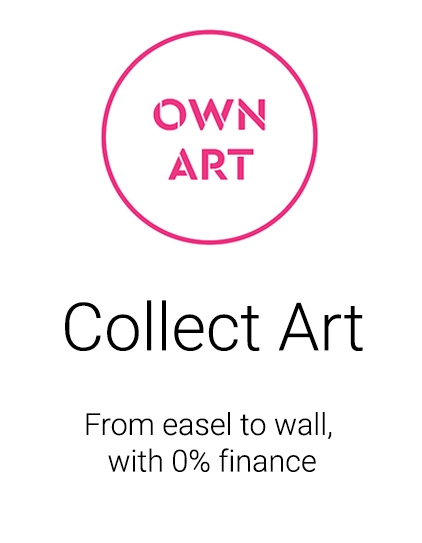In order to give you the best browsing experience our website uses cookies. By using our site, you are accepting our use of cookies. Please see our privacy policy.
Receiving a Commission
Commissioning an Artwork
Whether you get a commission through a gallery or you are contacted directly by a client, working on a commissioned painting is a business relationship between artist and collector. The collectors come to artists because they like their style and the artists execute the artwork according to the collectors’ vision. It is important to approach a commission with an open mind and listen to the collector’s requirements as per size, image and colour combination. In order to avoid disappointment, here are a few aspects to consider when taking on a commission.
Communication
From the first approach and all the way throughout the process, communication is important so both parties know what to expect from each other. Meet the collector in person if this is possible and visit his/her home so you can have an idea of the décor and colour scheme. If the distance is an issue, ask them to send you photos of their home so you can visualise where your painting will stand. If the commission is a gift for someone else ask as many questions about the person as you think are relevant in creating the artwork. For a portrait commission, apart from a photo reference, it is also a good idea to ask about the subject’s personality so you have a complete portrait in mind when painting it.
Keep your client posted throughout so they know every stage of the painting. Send them photos with the progress as it is easier to amend if they suggest any changes. Also, it is important to have feedback on your progress so you know you are on the right track and you understood the brief.
Professionalism
Listen to your client’s brief and respect their input as your collector is the beneficiary of the finished product. If they don’t like a certain colour don’t use it, even though it might be your favourite. It is important to show the client your portfolio so they know your work. The client should respect your style so make this clear from the very beginning. For example, if you only paint in oils, make it clear that you won’t paint in acrylics and if your style is impressionistic make it clear that you won’t create a photographic artwork. Yet if you are versatile and happy to try other mediums and styles, clearly state this from the very beginning. Be open-minded and don’t take it personally if the client doesn’t like something within the painting. Amend it if you can and carry on with the commission.
Contract agreement
Whether you take a commission through a gallery or on your own, it is a good idea to have an agreement in place so you won’t be at loss in case the collector cancels the commission at some point. Galleries may have their own agreements in place, but here are a few important points to consider:
- Ask for a non-refundable deposit to cover your materials and explain why this is needed.
- Agree upon a selling price from the very beginning and add it to the contract agreement.
- The collector has the right to refuse the final artwork but you will retain the non-refundable deposit as well as the artwork.
- Copyright of the artwork stays with the artist so the artwork may not be reproduced or altered without the written consent of the artist.












